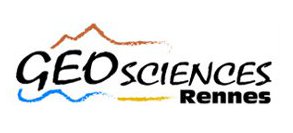Northward drift of the Burma Terrane with India during the Cenozoic and implications for the India–Asia collision
Résumé
The past location of the Burma Terrane during the convergence of the Indian and Asian tectonic plates is key to unravelling the regional geodynamic, palaeoenvironmental and palaeobiogeographical history of the eastern edge of the Himalayan orogen. Palaeomagnetic data provide the ability to constrain the location of the Burma Terrane, but it has been very difficult to find rocks with palaeomagnetic records of primary characteristic remanent magnetizations. We present here new palaeomagnetic results spanning the Paleocene to late middle Eocene within the Burma Terrane, complementing palaeolatitudes previously established from Late Cretaceous intrusive rocks and late middle Eocene sedimentary rocks. Our palaeomagnetic data indicate that the Burma Terrane remained at equatorial latitudes during the Paleocene and early Eocene, at a considerable distance from the South Asian margin. In addition, palaeomagnetic results from mid- to late Eocene sedimentary rocks yield a predominantly north–south orientation of the Burma Terrane over the past 45 Myr, showing that it was not part of the NW–SE-oriented Sundaland margin before its collision with India. Our results support collision models involving a Trans-Tethyan subduction system during the Late Cretaceous and early Paleocene. We propose that this system incorporated the Burmese volcanic arc and continental fragments of Argoland before drifting north with India towards Asia. The new palaeogeographical model considers a reduced amount of oblique subduction of the Indian plate below Burma during the Cenozoic. A possible source of sediments filling the thick Myanmar basins from the Gangdese belt during the Eocene supports the hypothesis of an India–Asia collision around ∼50 Ma. The new palaeogeography supporting the formation of the Myanmar Cretaceous amber on an isolated Trans-Tethyan Arc is also a key element in discussions of the palaeobiogeographical evolution of the numerous faunas it contains.
Domaines
Planète et Univers [physics]
Fichier principal
 westerweel-et-al-2024-northward-drift-of-the-burma-terrane-with-india-during-the-cenozoic-and-implications-for-the-2.pdf (8.97 Mo)
Télécharger le fichier
westerweel-et-al-2024-northward-drift-of-the-burma-terrane-with-india-during-the-cenozoic-and-implications-for-the-2.pdf (8.97 Mo)
Télécharger le fichier
| Origine | Fichiers éditeurs autorisés sur une archive ouverte |
|---|
